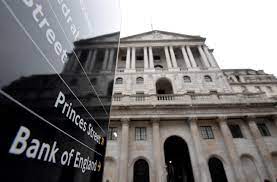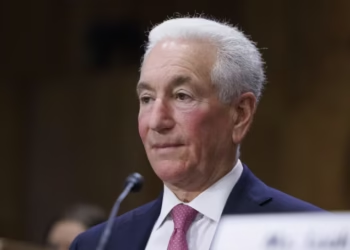The UK economy remained stagnant for a second consecutive month in July, as official data from the Office for National Statistics (ONS) reveals a continued flatlining in economic activity.
Following a pre-election slowdown in June, gross domestic product (GDP) again failed to grow, leaving economists and market analysts surprised at the lack of a post-election boost.
Despite growth of 0.5% over the three months leading up to July, the latest ONS figures have highlighted the ongoing struggle of the economy, with zero growth reported for two consecutive months.
This follows Labour’s initial weeks in power, leaving the City to digest what has been described as a shockingly weak performance after optimistic forecasts for a 0.2% growth.
Economy Shows Mixed Signals
The first quarter of 2024 saw an expansion of 0.7%, with a further 0.6% rise in the second quarter, signaling what many believed was a recovery from the mild recession experienced in late 2023. However, the economic rebound appears to have faltered.
Chancellor Rachel Reeves did not downplay the challenges facing the UK.
“I am under no illusion about the scale of the challenge we face and I will be honest with the British people that change will not happen overnight. Two-quarters of positive economic growth does not make up for 14 years of stagnation.”
Rachel Reeves
While the economy remains in a delicate position, expectations have grown for a potential cut in interest rates by the Bank of England. Following the flat growth in July, there is speculation that the central bank might reduce interest rates for a second consecutive time at its meeting on 19 September. Interest rates currently stand at 5%.

Economists Weigh In
Ruth Gregory, an economist at Capital Economics, commented on the situation, stating, “For now, we are sticking to our view that the Bank of England will keep interest rates unchanged in September before cutting rates again in November. But today’s data has made an interest rate cut next Thursday a bit more likely.”
However, it wasn’t all bad news for the economy. Of the three key sectors, services showed modest growth of 0.1% in July, largely driven by gains in the computer programming and health industries, which had previously been affected by strike action.
On the other hand, both production and construction output experienced declines, with manufacturing contracting by 0.8% and construction output falling by 0.4%.
“July’s monthly services growth was led by computer programmers and health, which recovered from strike action in June. These gains were partially offset by falls for advertising companies, architects, and engineers. Manufacturing fell, overall, with a particularly poor month for car and machinery firms, while construction also declined.”
Liz McKeown
Challenges Ahead
In the three months leading up to July, the level of GDP was 1.1% higher than during the same period in 2023, but questions remain over whether the summer slowdown was temporary or part of a longer-term issue.
Lindsay James, an investment strategist at Quilter Investors, cautioned that while this might be a temporary dip, Chancellor Reeves must tread carefully in her upcoming budget. She warned that aggressive tax hikes or unfavorable policy shifts could deter investors.
“Given the mood music emanating from the government and the economic inheritance it has received from the Conservatives, the government needs to be careful not to overcorrect with its narrative around tax rises and the potential this has to put off investment.”
Lindsay James
Meanwhile, Anna Leach, the chief economist at the Institute of Directors, emphasized the importance of creating a business-friendly environment to restore confidence and growth.
“It is important that the forthcoming budget delivers a strong and positive message on growth. To reinforce business confidence to grow and invest, businesses need a predictable and efficient tax system and growth-supporting policies.”
Anna Leach
With growing pressure on the government and uncertainty about the direction of the economy, all eyes are now on how policymakers respond in the coming months.
READ ALSO: President’s Call for Parents to Send their Wards to Private Schools Raises Concern



















